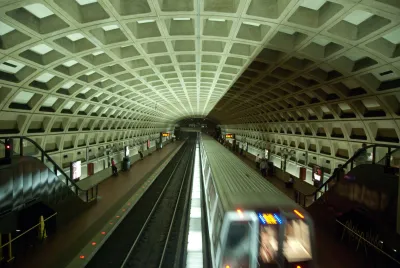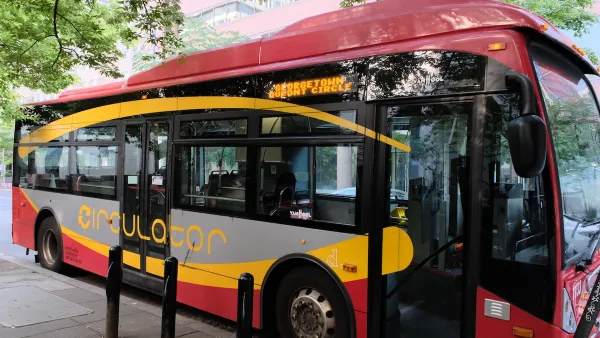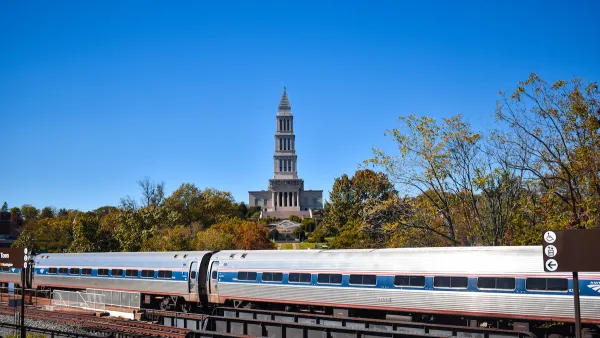The capital’s public transit system, the country’s third-largest, has been plagued by a series of problems ranging from a looming fiscal deficit to train crashes and track fires.

An article by Jake Blumgart in Governing outlines the Washington Mentropolitan Area Transit Authority’s (WMATA) fiscal crisis, the worst in its recent history. “Washington, D.C.’s mass transit offerings could get substantially worse next summer if something doesn’t radically change. WMATA’s most recent public forecast shows a $356 million deficit in the fiscal year 2024 budget, because only 53 percent of the trips taken pre-pandemic have returned.”
The system has also faced a series of crises. “In October, one of Metro’s newest 7000 series trains derailed in Arlington, Va.” Earlier this year, “Metro admitted that half its rail operators have not kept up on their driver certifications. Many were pulled from duty, resulting in further delays. A separate and unrelated report found that the agency’s personnel recklessly disregard worker safety.”
With a new general manager on the way, Metro has an opportunity for another reset. But in interviews and at hearings, outside stakeholders say they do not hear current board members and high-level staffers providing adequate strategies for WMATA’s existential challenges. The gamble seems to be that the system is too big to fail.
Blumgart details the agency’s history of questionable authority and accountability, its confusing and diffuse leadership structure, and the disturbing claim that the agency operates under a culture of noncompliance. The article also describes several options for governance structures that could place more accountability on the agency and find problems before they become full-blown crises. Blumgart doesn’t predict which outcome is most likely to be effective, but asks, “Why not put all options on the table at this moment of extreme uncertainty, and show policymakers from Congress to the legislature and city hall to the C-suites that change can come to Metro?”
FULL STORY: Washington Metro Is a Transit System in Deep Trouble

National Parks Layoffs Will Cause Communities to Lose Billions
Thousands of essential park workers were laid off this week, just before the busy spring break season.

Retro-silient?: America’s First “Eco-burb,” The Woodlands Turns 50
A master-planned community north of Houston offers lessons on green infrastructure and resilient design, but falls short of its founder’s lofty affordability and walkability goals.

Delivering for America Plan Will Downgrade Mail Service in at Least 49.5 Percent of Zip Codes
Republican and Democrat lawmakers criticize the plan for its disproportionate negative impact on rural communities.

Test News Post 1
This is a summary

Test News Headline 46
Test for the image on the front page.

Balancing Bombs and Butterflies: How the National Guard Protects a Rare Species
The National Guard at Fort Indiantown Gap uses GIS technology and land management strategies to balance military training with conservation efforts, ensuring the survival of the rare eastern regal fritillary butterfly.
Urban Design for Planners 1: Software Tools
This six-course series explores essential urban design concepts using open source software and equips planners with the tools they need to participate fully in the urban design process.
Planning for Universal Design
Learn the tools for implementing Universal Design in planning regulations.
EMC Planning Group, Inc.
Planetizen
Planetizen
Mpact (formerly Rail~Volution)
Great Falls Development Authority, Inc.
HUDs Office of Policy Development and Research
NYU Wagner Graduate School of Public Service





























